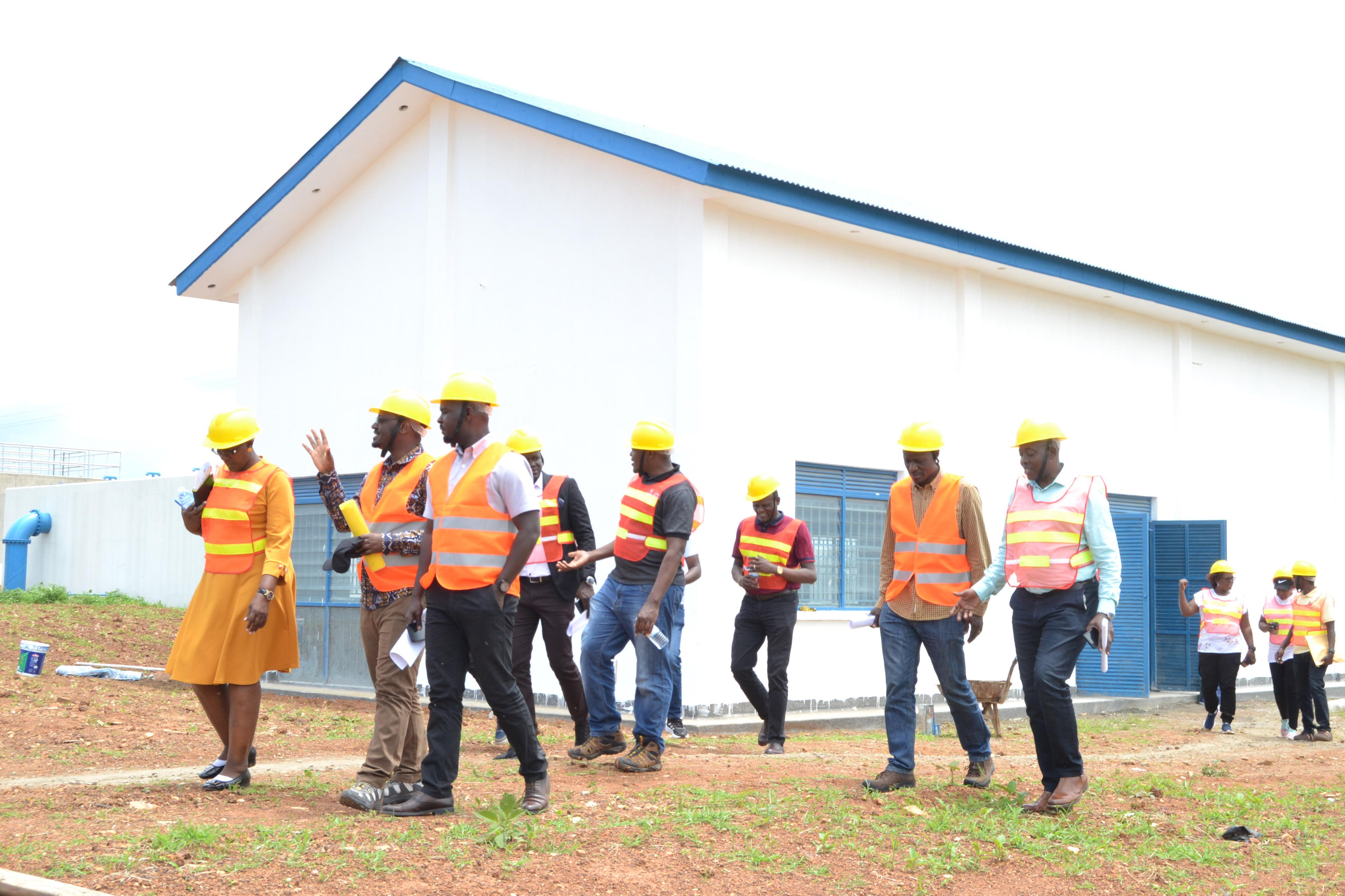Locals resort to dirty water amid scarcity

A woman collects water from a stream in Kilulu B, Busamaga Ward, Mbale City. PHOTO/PHOEBE MASONGOLE
What you need to know:
- The residents said they are yet to see the benefits of their area being incorporated into the city boundaries.
Women, some with babies strapped to their backs, queue to fetch water at an unprotected spring in Bulweta Village, Bukonde Sub-county in Northern Division, Mbale City.
The women say they spend between four and five hours searching for water from different sources.
Ms Barbra Wanyenze, a resident, says they sometimes collect water from unprotected springs and streams, which are not safe because they spend little time there.
“We spend more time in a queue at the protected springs because that is where we all fetch water for drinking,” Ms Wanyenze says.
The locals say when the sub-county was carved out of Mbale District and added to Mbale City in 2020, they thought service delivery would be improved, including the National Water and Sewerage Corporation (NSWC) extending tapped water to the area but this has not come to pass.
“We wanted to oppose being part of the city but our leaders said it will bring services closer including safe water. Since then, nothing like that has happened,” Mr Rashid Magomu, a farmer, said.
Mbale is one of the towns that were granted city status by the government on July 1, 2020, but locals say there is nothing to show for it.
Ms Joyce Nagudi, another resident, says her family often suffers from diarrhoea, which she blames on drinking contaminated water.
“It is evident that the government through NWSC has failed to extend tap water to us. This has denied us a right to safe water despite being in a city,” she says.
Ms Joan Nambozo, a resident of Nabweya Ward in Northern City Division, says most of the boreholes in the area have dried up.
“When the boreholes go dry, we are forced to trek long distances in search of water,” she says.
Mr Yusuf Mugoma, another resident of Namakwekwe Ward in Northern Division, blames the issue on NWSC.
“The water is not reliable, especially now. It flows during morning hours and it disappears completely yet this is the time people need water so much,” he says, adding that the Shs200 charged for each 20-litre jerrycan is too expensive.
According to NSWC, a 20-litre jerrycan of water is sold at Shs50 for domestic use, Shs78 community use, and Shs87 institutional use.
Ms Joyce Namataka, a resident of Bujoroto, says: “We wake up at 3am to go and collect water because once it clocks 7am, the water stops flowing from the taps.”
Dr Moses Mugonyi, the Mbale City Health Officer, says the locals are at risk of contracting diseases.
“Most water springs in the communities are just a few meters from pit latrines, indicating that the water is highly contaminated,” he says.
Mr James Kutosi, the Mbale City spokesperson, says they are aware of the issue.
“All we need is the NWSC and the council to come to an understanding to see how best we can ensure that all people have access safe and clean water,” he says.
NWSC says it pumps an average of 100,000m3 of water daily that serves a population of at least two million who live in the districts of Mbale, Sironko, Bulambuli, Manafwa, Bududa, and Namisindwa, among others.
NWSC reacts
Mr Badru Wadwasi, the manager of National Water and Sewerage Corporation (NSWC) in Mbale City, blames the issue on the reluctance of people to pay bills, which leads to them being cut off from accessing clean water.
“At NWSC, we know that customers have different needs and are bound to use our water and services differently. We, therefore, offer a range of tariffs made to cater to each customer’s activity, be it commercial, institutional, or domestic,” he says.
He adds: “The tariff’s objective is to enable all people of different income statuses to access clean and safe water and the water is not expensive as people allege.”
Mr Wadwasi says the irregular water flow is caused by low pressure.




